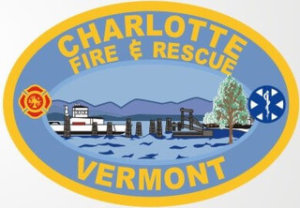CVFRS President: Pay our rescue workers or lose ‘em
An appropriations increase requested by CVFRS for fiscal year 2022 was the hotly debated topic at the Special Selectboard Meeting on January 17 with the final decision to be made by town voters in March.
 During an intense discussion Monday, CVFRS Corporate Board President Fritz Tegatz and Town Clerk Treasurer Mary Mead again locked horns over the nonprofit’s $930,526 appropriations request as they had at the regular Selectboard meeting on January 10.
During an intense discussion Monday, CVFRS Corporate Board President Fritz Tegatz and Town Clerk Treasurer Mary Mead again locked horns over the nonprofit’s $930,526 appropriations request as they had at the regular Selectboard meeting on January 10.
A visibly frustrated Tegatz accused the town of treating CVFRS’s per diem rescue workers as “second class citizens” by failing to approve an 18% budget increase that would allow them to become full time employees with benefits.
The cost to keep two fire and rescue staff on call for Charlotte residents 24 hours a day, 365 days a year, at an hourly wage of $18-$19, without benefits, is $502,000, Tegatz said.
Selectboard member Matt Krasnow said that because the Selectboard has no authority over how contractor CVFRS’ budget is managed, the requested increase should be put before the taxpayers as a separate article they can vote on.
Tegatz disagreed.
“To penalize the fire and rescue employees by making them put their market adjustment up for a separate article when you haven’t done that for the senior center [or] the library [or] for the clerk treasurer’s office or anybody else is unfairly targeting our employees and treating them as second-class citizens,” Tegatz said.
Mead has at recent budget meetings been outspoken in her belief that CVFRS’s appropriation should be decreased, not increased. She argued that CVFRS, a private nonprofit, should seek outside grants and contribute its own special funds to help cover rising costs.
“Back in the olden days, [fire and rescue] applied for homeland security grants and they were very good at it, and they saved us a lot of money,” Mead said. “We shouldn’t have to be having to pay for all these extra things on top of it. It’s just not okay.”
Mead suggested the Selectboard also reduce CVFRS’s capital reserve fund line item from $150,000 to $110,000, explaining that in 2021 the nonprofit had not managed to spend its full budget, yet requested the same amount this year.
Krasnow agreed.
“At $110,000 I think we could maintain the structure that we have and revisit this with CFRS’s corporate board when we review the MOU (Memorandum of Agreement),” Krasnow said.
Tegatz said he was “struck” that the Selectboard allowed Mead to “run the budget meeting”, as it was “not her job.”
“Year after year she decides to badger the fire department,” Tegatz said. “I don’t understand why she’s given that latitude.”
Resident Katherine Hughes said that according to local news source The Charlotte Bridge, Charlotte’s fire and rescue budget was “almost twice as much” as similar budgets for neighboring towns Hinesburg and Shelburne.
“That concerns me as a taxpayer,” Hughes said.
Tegatz explained that the town of Hinesburg does not have a rescue service of its own but pays Richmond rescue to provide paramedic services, the cost of which “isn’t included in the number that you see [in The Charlotte Bridge].”
Mead suggested leveling CVFRS’s budget “back to the budget of 2021” because the contractor’s increase was “not justified.”
Tegatz responded by reminding Mead that, unlike the rescue workers whose benefits she wanted to cut, she would enjoy a wage increase this year.
“Why should we give payroll cuts to the people across the street, while Mary [Mead] and other people at the town hall are getting payroll increases?” Tegatz asked the board.
Selectboard Chair Jim Faulkner said while it “would be nice” if the CVFRS could agree to a reduction in budget costs, “I think maybe that’s not possible under the circumstances.”
Vice Chair Frank Tenney said he was “not comfortable” putting the entire requested amount in a separate article. Tegatz offered to reduce the amount by an additional $40,000 – the salary intended for a yet-unhired manager.
“We requested for a paid employee for a manager, because the volunteer ones are not there anymore,” Tegatz said. “Nobody wants to volunteer to go through this crap every year for free.”
The Selectboard agreed that if CVFRS finds the right manager at a later date, the two boards will work together to cover the employee’s salary.
“If we find this person later in the year, I’m sure our special funds can make [up] a significant portion of [the salary],” Tegatz said.
Mead remained unconvinced.
“You guys (CVFRS) need to put into your budget a few more grants and some special funds and reduce the cost to the town of Charlotte,” she said.
Krasnow compared CVFRS costs as similar to investing in an insurance plan.
“We don’t get to choose how much we pay for insurance,” Krasnow said. [Fire and Rescue] is an insurance policy on every house and every life in town. I personally support the budget and I support the work they’re doing.”
“If someone’s house is on fire, or someone is having a heart attack, that’s the priority,” Member Lewis Mudge said.
Tegatz agreed with the plan to make the appropriation request a separate article.
“The town can vote on whether they want ambulance service or not,” he said.

